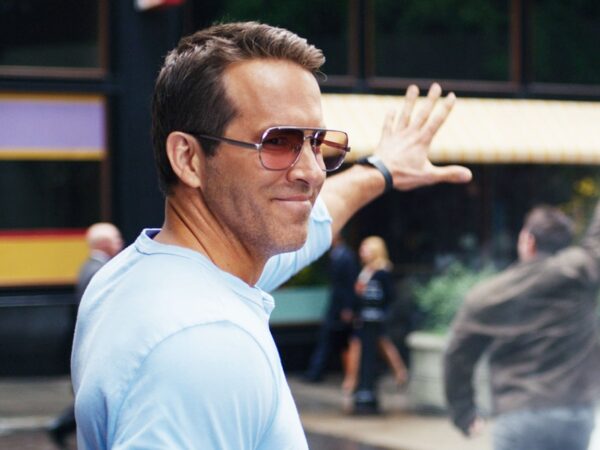Earlier this month, people in Central Park noticed the presence of a majestic Mandarin duck. As quickly as he was there, he was gone. But he’s back. With his bright pink beak, mohawk of blue and gold, and proud chest feathers of royal purple, the mysterious visitor has returned—and quickly captured our collective heart.
Dubbed “glamour duck,” by Twitter and the fashion magazine Elle, the New York Times sent a reporter and photographer to cover his perplexing appearance on a pond in the southern tip of the city’s biggest park. Mandarin ducks aren’t native to New York, and the nearby Central Park Zoo told Gothamist the duck wasn’t one of theirs.
Regardless of his origin, the paper of record found New York City birders in a state of near ecstasy as they caught a glimpse of the babe bird. As one person put it on Twitter, “life goals: the unnamed mandarin duck that mysteriously appeared in central park and has sent every birdwatcher into a fainting spell.”
His existence also seemed to keep Twitter happy for some time, a tough feat on Halloween, when timelines are replete with gaud and glitter. But the duck easily outshined posted pictures of bedazzled beelzebubs and frocked flocks. (Humans dressing as birds surely couldn’t compete, though he did inspire some fun holiday-themed ribbing: “he’s just a mallard in a good halloween costume, okay.”)
The here-then-gone-then-here-again appearance of the #birb (as Twitter loves to lovingly refer to pretty, pretty birdies) plus the internet’s instant oatmeal obsession with him inspired WIRED’s Paris Martineau to propose a different nickname for the fowl: duckboi, a reference to the term that means, roughly, a good looking player interested in only in sex, who’ll lead you on and never commit.
It’s a funny term, sure, but remember, commitment goes both ways. The surge of duck tales quickly gave way to political stories and memes and misinformation and all the general sadness and horror and grief commonly found in our feeds. People tried to bring the duck back. “More duck in the timelines, please!” tweeted Bloomberg Business reporter Rebecca Greenfield.
But, glamour duck’s 15 minutes will expire. They may have already expired by the time this story is published. The realities of life–the very serious election coming up, the trick-or-treating that needs to be completed before sunset, the candy that needs to be hidden from children and eaten by their parents–will all conspire to make us forget little duckboi.
He will be eclipsed by a different animal on the loose, an alligator doing something it shouldn’t or a mountain lion in a place it doesn’t belong. He will become the #mprraccoon, who scaled the building in Minnesota earlier this year. Or the goats that ran around Queens in August until none other than America’s dad, Jon Stewart, rescued them and had them sent to a farm sanctuary up state. He will be the Bronx zoo snake. The escaped zoo flamingo who has lived for years in Texas, spotted now and then doing its thing, all alone. The mountain lion that Salesforce CEO Marc Benioff spotted in San Francisco. He will be the Times Square bees. The llamas on the loose in Arizona. Or, the saddest shared social media animal moment of all: the escaped bull in Brooklyn, who in February of 2017 ran away from the butchers trying to slaughter him, speeding through the streets, capturing the hearts and minds of a city who rooted for him like he was a real-life Ferdinand the Bull, only to be shot by police. Let’s hope the little birb doesn’t meet the same fatal fate, but let’s accept that he will melt into the collective consciousness like all the other out-of-place, out-of-time animals before him.
Because while duckboi captures our heart today, every few months, social media finds a different animal to lionize, so to speak. Why? A theory: because they represent not only our own lost wildness, but seeing them in a place they should not be, usually by escaping a place they should not have been in the first place, gives us some sort of glimpse into what it means to be free. These animals on the loose are the perfect metaphor for our time: doomed questers trying to escape the confines of our age. They just want to be llamas, or cows, or bees, buzzing and bleeting and bellowing. And for a moment, as we watch, we’re free from our desks and duties, we’re out there, with the sun on our face with them, wild and lost but existing, even if it’s for a short moment.
Eventually, though, we will move on. We will forget about glamour duck. And we will wonder if he ever knew how loved he was. Isn’t that just like a duckboi?
More Great WIRED Stories
- Inside the cafés where people go to talk about dying
- How to get iOS 12.1 (and those new emoji) on your iPhone
- The science of sniff: how dogs can detect disease
- My dad says he’s a “targeted individual.” Maybe we all are
- Jeff Bezos wants us all to leave Earth—for good
- Looking for more? Sign up for our daily newsletter and never miss our latest and greatest stories
Source:WIRED










